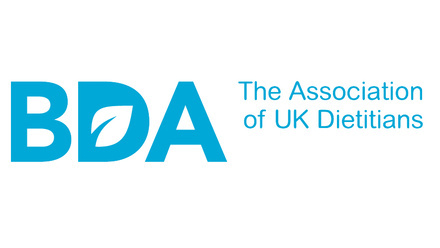Food and nutrition experts welcome the prescribed use of GLP-1/ GIP Receptor Agonists for people living with obesity and/ or type 2 diabetes, when offered alongside dietary support and physical activity.
However, until everyone can benefit from this medication, with equal access - irrespective of postcode or budget, their success will be limited, warns the BDA.
In a joint position statement by the British Dietetic Association (BDA) and the British Nutrition Foundation (BNF), the prescribed use of GLP-1/ GIP Receptor Agonists for people living with obesity and/or type 2 diabetes has been broadly supported. However, concerns have been raised about how the people that need them most are able to access them safely and if they are being given the ongoing support they need, to achieve long-term results.
Obesity is a complex, relapsing and potentially long-term condition. Currently these medications, which offer a new treatment pathway, are only available on a time-limited basis. Subject to the continued long-term evaluation of them, there is a need to stop stigmatising people living with obesity by only offering time-limited support.
Equal access, between nations and postcodes is also a critical factor. Whilst they will be managed more widely in Scotland, for those living in England and Wales, they are currently only available on the NHS via Tier 3 Weight Management Services. Several NHS Trusts in England, for example, don’t offer any Tier 3 services at all, meaning many don’t have any access to these medications, unless they are able to afford to go privately.
Caroline Bovey, Registered Dietitian and Chair of the BDA, which represents thousands of registered dietitians and support workers, working within the NHS and privately across the UK, says, “GLP-1/ GIP Receptor Agonists are a brilliant addition to the toolbox for treating obesity, when prescribed alongside a reduced-calorie diet and increased physical activity. However, it is entirely unfair if some people can access them whilst others, who would truly benefit from them, can’t. Budgets and postcodes shouldn’t be a barrier to weight management support.”
Earlier this year the Prime Minister announced a £40million investment in a two-year pilot to explore if access to these medications can be increased by making them available outside of hospitals, for example within Primary Care.
Caroline adds, “We’re encouraged the Government is looking to expand the use of these important medications into Primary Care, however, it is absolutely essential that this is done fairly, consistently and at pace across the UK. We need to ensure those desperately in need of support are offered these medications as part of the comprehensive and fully inclusive treatment options available within the NHS.”
In their position statement, the BDA and BNF highlight the importance of holistic support and management from a multi-disciplinary team (for example specialist dietitians, physicians and psychologists) for the treatment of obesity and/or type 2 diabetes, alongside other treatment options. This is essential if these medications are to provide long-term benefits.
The need for proper monitoring and support alongside the use of these medications, extends to those buying them privately. The BDA and BNF believe there is a risk to those who are able to access them by paying for them, if they are not being monitored or having wider dietetic support.
GLP-1/ GIP Receptor Agonists represent a significant breakthrough in the effective treatment of obesity, but they are not the entire solution to address the high and increasing prevalence of obesity.
Enhanced preventative strategies shouldn’t be forgotten. Comprehensive policies and systematic approaches aimed at improving the food environment, and the affordability and accessibility of healthier foods as well as mitigating food insecurity are needed urgently.
Sara Stanner, Science Director at the British Nutrition Foundation says, “For people living with obesity, this will be a valuable and important tool in the toolbox. But alongside treatments, we must continue to focus on prevention and find effective solutions to tackle the underlying factors contributing to obesity, promoting equitable health improvements across all stages of life.”
Caroline concludes, “As our joint statement outlines, whilst these medications are an important step forward, they will not address the source of the issue. We still need serious investment from the Government to ensure everyone has the right to affordable, healthy food and that public health policies and whole system approaches make a real difference.”
Access the full position statement here.





